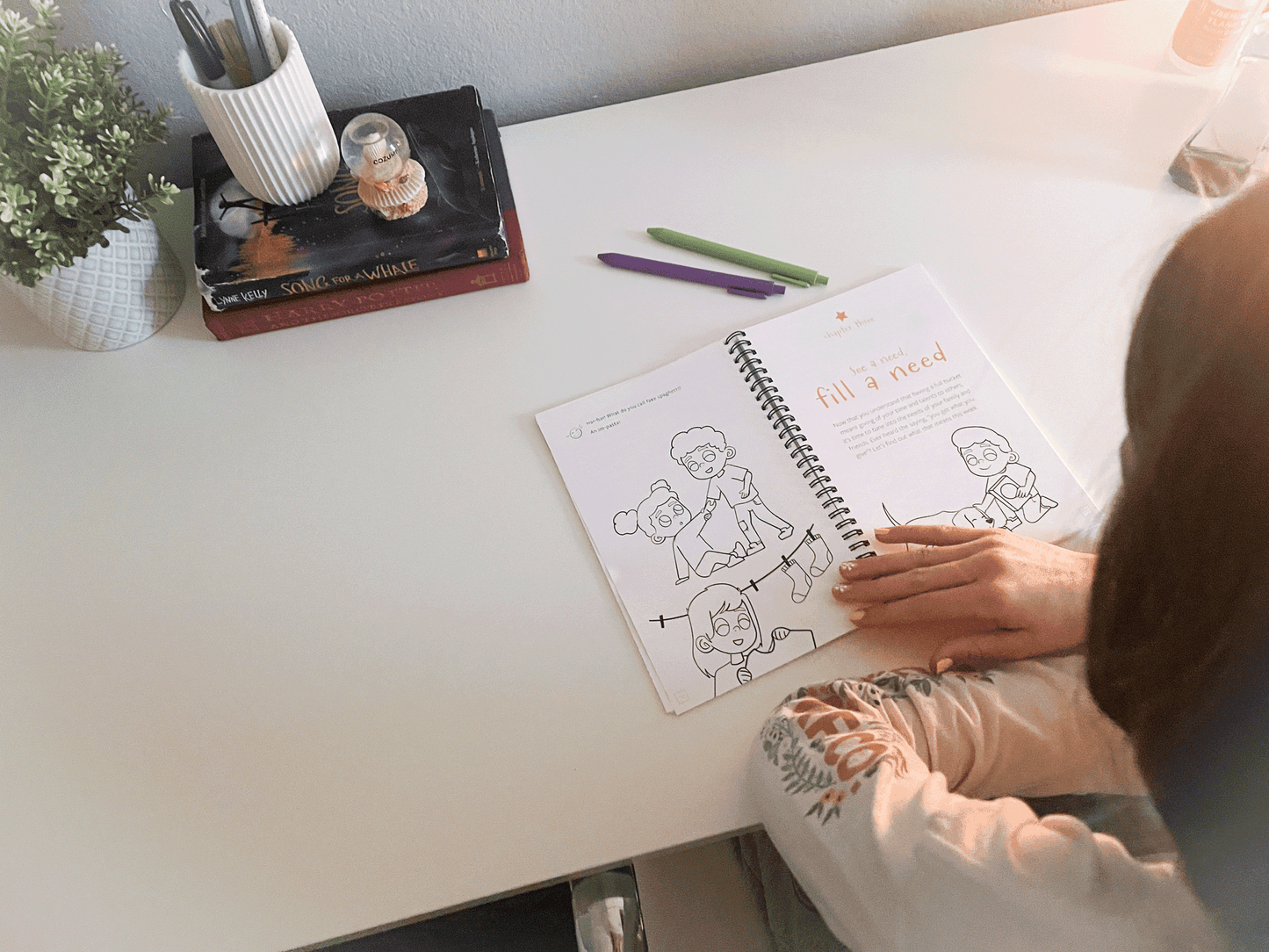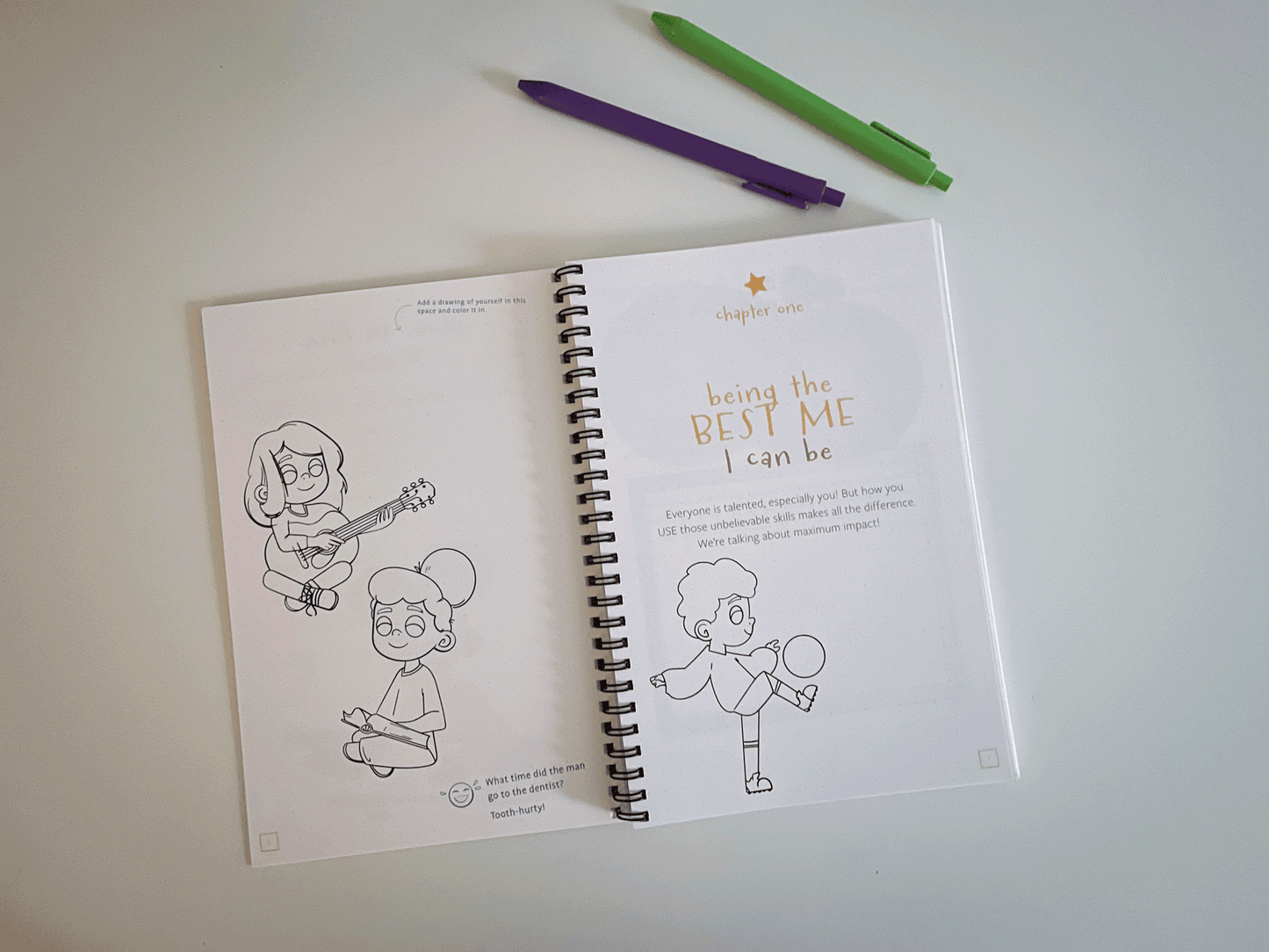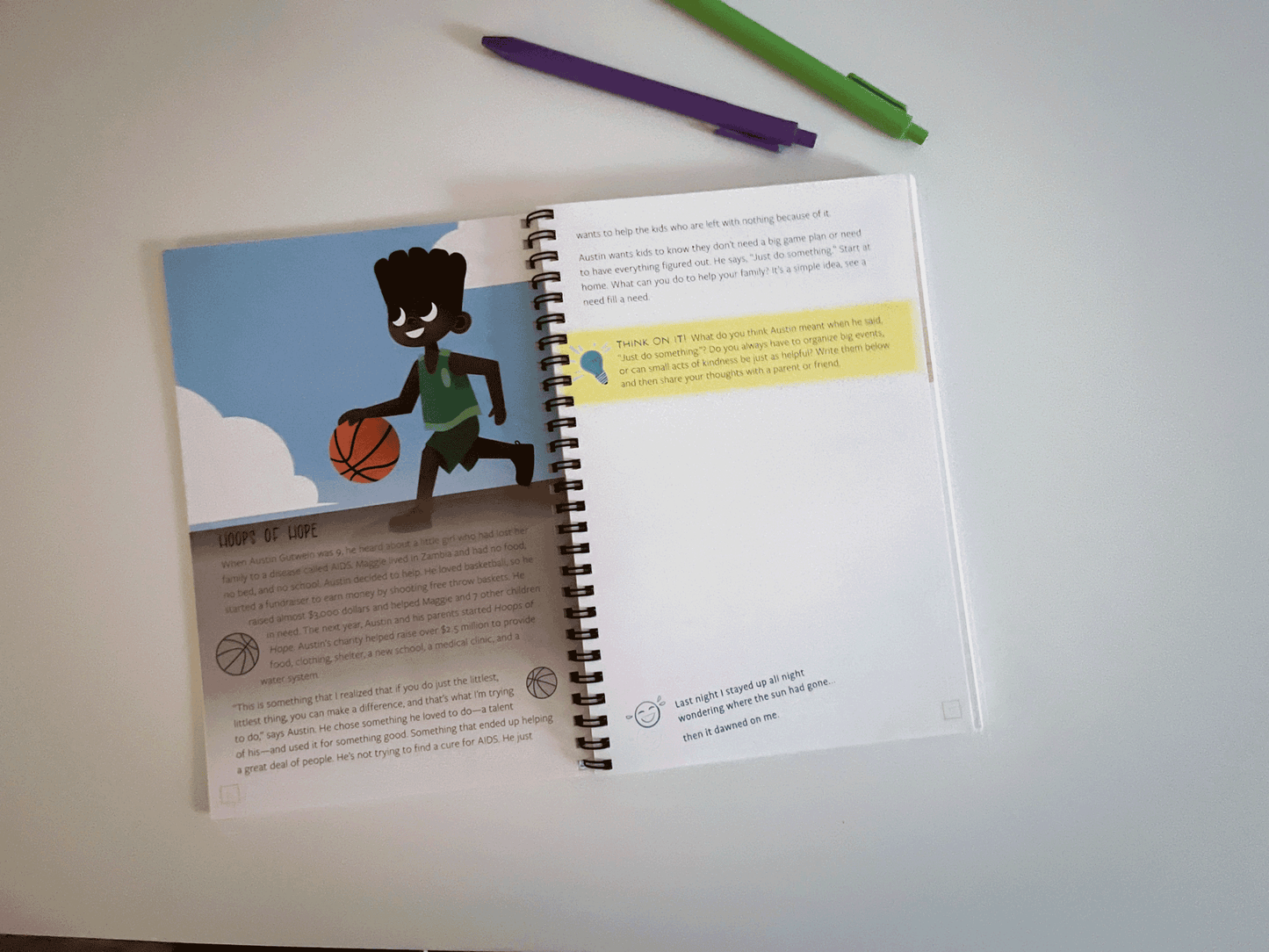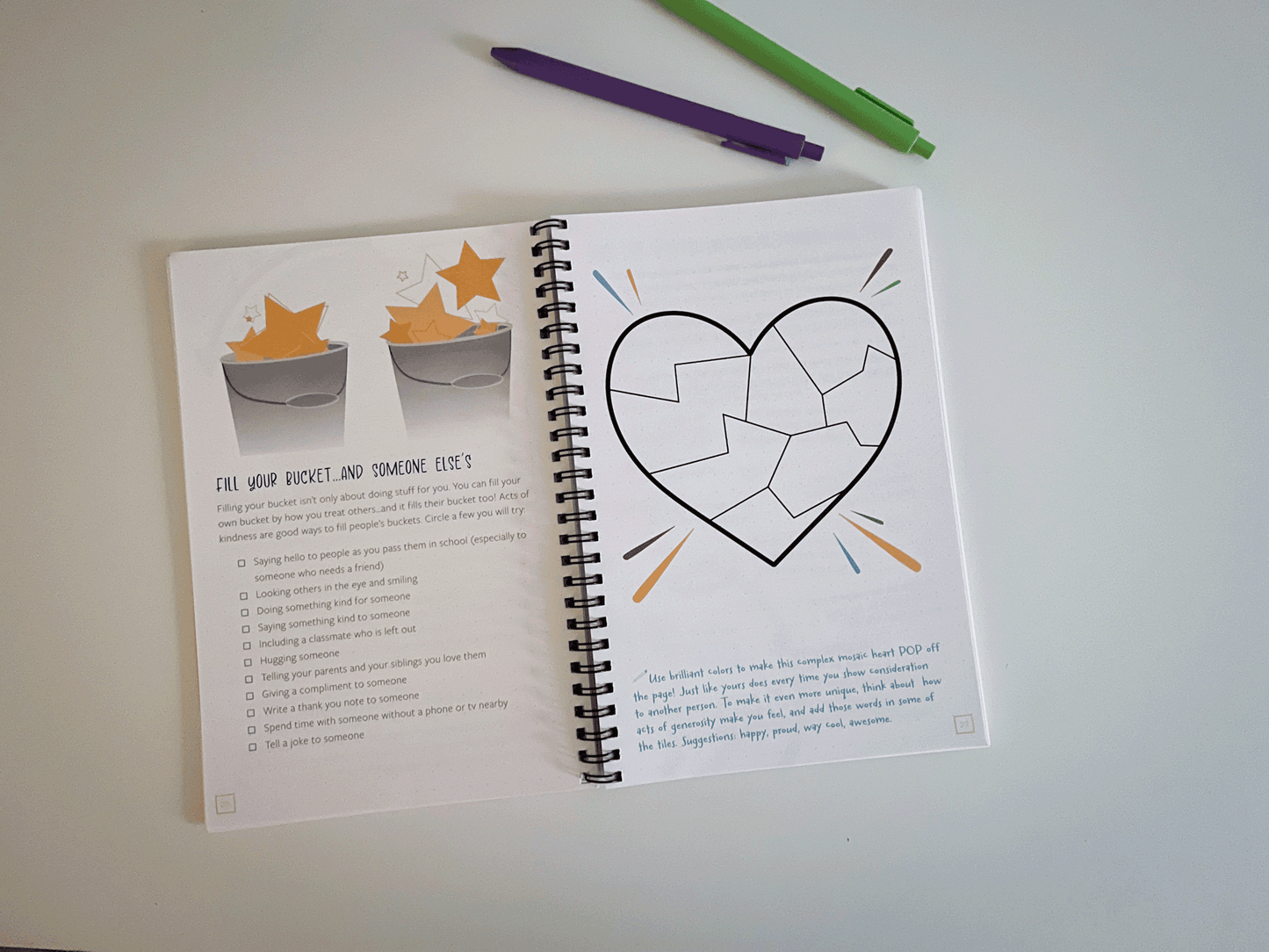A WORD FROM OUR FOUNDER
Steven Markel
It’s amazing to think about how far the world has come in regards to education and the advantages that this has brought to societies around the world and to each of us individually. For good reason, our culture has placed a special emphasis on education, and as parents we face enormous pressure to make sure that our kids get the best of the best when it comes to school programs.
The power of education is amazing, but what our kids are learning in school is not complete unless they can apply what they learn with character and virtue. Through practicing virtue our kids learn to love; they learn what it means to have solid, trusting relationships; and they learn to persevere when times get tough. Forming the intellect of a person is great, but it is not enough without forming the will to love.
The same goes for our faith. Many of us have great intentions when we attend church, dive into the Bible or other spiritual readings, and send our kids to religious education. These are great things, but as we will see, these become indifferent if we don’t learn to apply them with love. As Saint Paul indicates, faith without love is nothing, (1 Corinthians 13:2).
Let’s dive deeper into what this authentic love looks like.
What is authentic love?
Edward Leen, in his book entitled The Holy Spirit says, “A profound knowledge of theology will not affect the indwelling of God in the soul: love alone will do this.” Just knowing God is not enough. Satan knows God and scripture but he is absent of love. Saint Paul tells us, “If I speak with the tongues of men and of angels but do not have love, I have become a sounding brass or a clanging cymbal. And if I have the gift of prophecy and know all mysteries and all knowledge; and if I have all faith, so as to remove mountains, but have not love, I am nothing. And if I bestow all my goods to feed the poor, and if I give my body to be burned, but do not have love it profits me nothing,” (1 Corinthians 13:1-3).
Love, therefore, is not passive or indifferent but a constant act of the will that moves us to give ourselves to God and others tirelessly. It also likens us to God, who is love. And so we should always try to grow in our capacity to love. As St. Josemaria said, “Lord: may I have due measure in everything…except in love.”
Faith resides in both the intellect and the will. We must know God, so understanding our faith is important, but our Lord tells us that the most important of all the commandments is to love God and love our neighbors. How many times a day do we fall short of these commandments by an indifference toward God and others, by our impatience, anger, selfishness, or pride toward our neighbor?
God is love. God the Father so loves us such that he sent his only Son as a reflection of this love. What did Christ do to reflect the love of the Father? He fulfilled the will of the Father. Christ contemplated his Father at all times. During his silent years he did everything with perfection, as it says in the Scriptures…he did all things well. He infused love into everything he did and united his will to that of his Father. During his public life he instructed people and cured the sick. In essence, he served others, never thinking of himself or his needs and wants. Christ made a total gift of himself to his Father and others. This is what God is calling us to do: to set aside our wants and needs in favor of those of our spouse, children, friends, co-workers and others. All of this out of love for God.
And what is to be the measure of our love? Christ himself gave us the answer to that, “A new commandment I give to you, that you love one another; even as I have loved you,” (John 13:34).
Jesus stressed the importance of loving our neighbor, but he also affirmed that love of God comes first when he said, “You shall love the Lord your God with your whole hearts, and your whole soul, and your whole mind. This is the greatest of the commandments and the first. And the second, its like, is this, you shall love your neighbor as yourself. On these two commandments all the law and the prophets depend,” (Matthew 22:37-40). And so we try to be generous in setting aside time for God every day to begin building our relationship with him.
How do we love?
Love (charity) is an infused virtue. It resides in us through baptism when God comes to reside in our souls. But we need to correspond to God’s grace and thus grow in love. The first way is to pray. This is why the norms of piety or a structured prayer life are an important means to grow in love. Prayer opens us to grace. Prayer enables me to see more clearly that God loves me.
We can also grow in charity by exercising it through small deeds of service for others out of love for God. We have many occasions everyday to serve others: spouse, children, grandchildren, friends, workmates…there are so many opportunities to perform small actions that can make life easier for others. An image that helps us with the idea of a self-giving love is that of a candle. The wax of the candle is consumed by fire and the result is light. Our lives should represent that of the candle. We give light to the world through our self-giving. We should become the best version of ourselves. If our goal is to become the best version of ourselves for God and others then we want to fulfill the two most important commandments, love for God and love for others.
The best version of ourselves involves learning from Jesus, seeing him as our model, and trying to love as he does. St. Josemaria captured this in the following manner, “If we profess the same faith and are really eager to follow in the clear footprints left by Christ when he walked on this earth, we cannot be content merely with avoiding doing unto others the evil that we would not have them do unto us. That is a lot, but it is still very little when we consider that our love is to be measured in terms of Jesus’ own conduct. Besides, he does not give us this standard as a distant target, as a crowning point of a whole lifetime of struggle. It is...the starting point, for Our Lord presents it as a sign of Christianity: ‘By this shall all men know that you are my disciples,’” (Friends of God, The Strength of Love, #223).
Growing in virtue is the surest way to become the best version of ourselves. Examples of virtue are gratitude, generosity, justice, sound decision making, integrity, respect and others. When a person works on replacing a bad habit with a good habit/virtue, it becomes an act of love if done for God and others. Making a gift of self leads to joy and unity which is vital for kids growing up in a period of post-Christian/post-family culture. Developing virtues help us form a healthy conscience understanding right and wrong action, which leads to confidence. Virtues also help us build willpower or self-control to do what we should when we’re temped to do something we shouldn’t. As we grow in willpower, we also build self-esteem. When we correspond to grace and grow in virtue, we are growing in authentic love and fullness of life.
Meet Steve!
Steve is the Founder and CEO of Families of Character. Together, he and his wife raised five grown children. Their family continues to grow each year with the arrival of new grandchildren. Steve founded Families of Character in response to the needs revealed within his own household and now is delighted to share the benefits of growing in character with families everywhere.
















